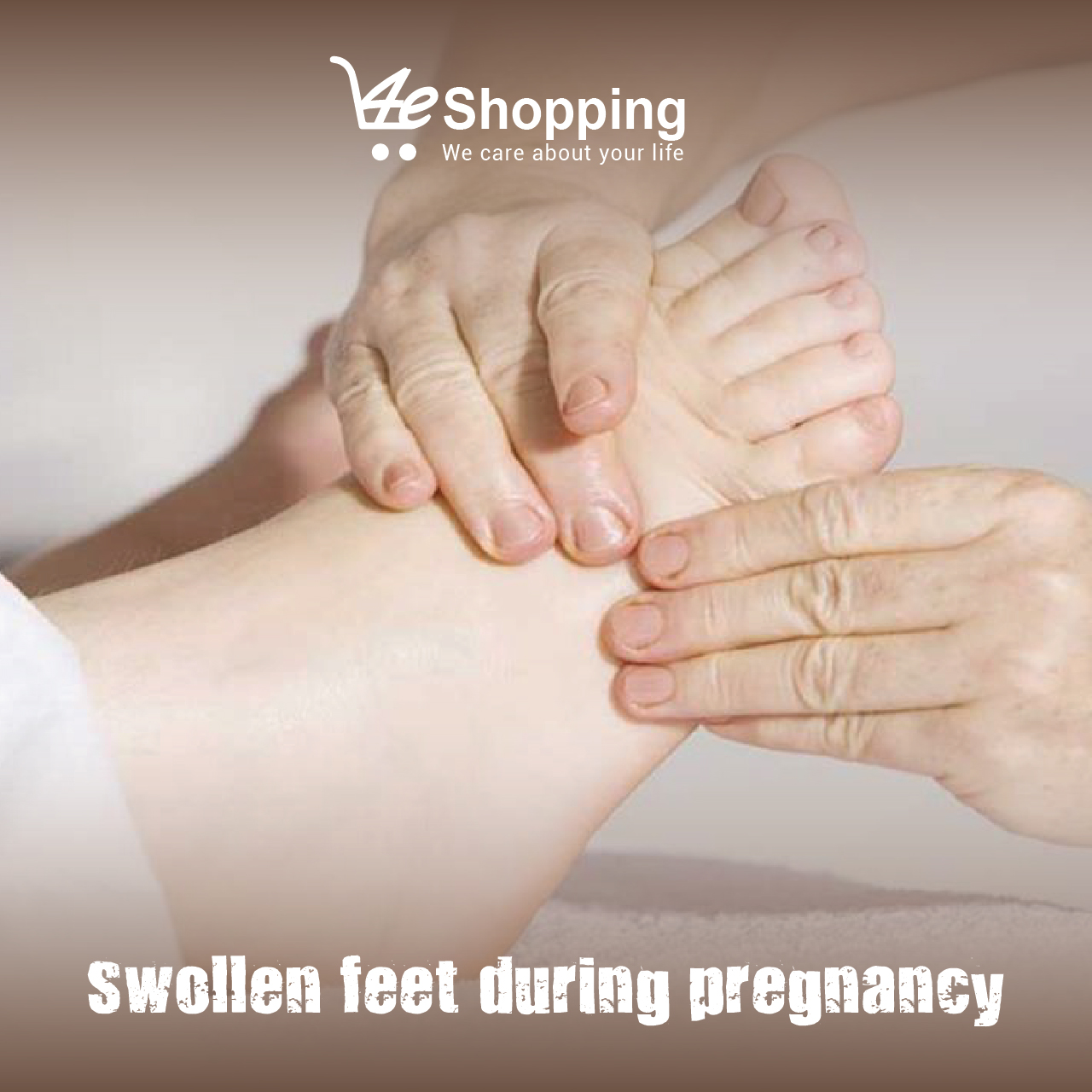
Pharmacist Pioneer Community. Why?
Jul 03 - 2022

After several months of pregnancy, a pregnant woman is often surprised that not all her shoes are suitable for wearing anymore; as the size of her feet is enlarged and fluid retention appeared clearly, forcing her to buy new, spacious and comfortable ones. Swollen feet, despite being annoying, is a very normal and expected symptom during pregnancy.
A pregnant woman goes through many hormonal and physical changes that increase her weight and change her body composition to cope with the presence of a fetus and create a suitable environment for its growth, but there is a fine line between being a normal symptom of pregnancy and a symptom that indicates the presence of a disease during pregnancy, what is the difference and what are the expected and unexpected causes?
This is what we will talk about in today's article:
When does swelling of the feet occur during pregnancy and what are its causes?
When does swollen feet become a threat to the health of the mother and the fetus?
What are the safe ways to treat swollen feet for a pregnant woman?
More than two-thirds of women during pregnancy suffer from the phenomenon of fluid retention in certain parts of the body, a phenomenon that often begins at the 22nd week of pregnancy and continues to the 27th week, or even for some women it may continue until labor.
Swelling in certain parts of the body (hands, ankles and feet) is a normal and integral part of the pregnancy experience, it often occurs because the body stores additional fluids to help support the growth of the fetus, where the volume of excess water in the body of a pregnant woman may reach 8 liters, in addition to the increase in the volume of blood plasma by 30-50%, which leads to an increase in the volume of blood in the body and slows down the blood circulation, and with the expansion of the uterus and the growth of the fetus, the pressure on the veins, especially those present in the lower body increases, causing more fluid to accumulate in the ankles and feet.
Hormones also play a role in the growth of the size of the feet. The hormone relaxin, which is responsible for the expansion of the pelvic joints to facilitate childbirth, also relaxes the ligaments of the feet, resulting in an increase in the width and size of the foot.
2. When does swollen feet become a threat to the health of the mother and the fetus?
Swelling during pregnancy can indicate a health problem, and among the most famous and most common of these problems are preeclampsia and blood clots.
If the swelling of the feet is severe compared to the normal situation since the beginning of the increase in body weight and fluid retention in pregnancy, this may indicate the presence of preeclampsia. Preeclampsia is when a pregnant woman suffers from chronic high blood pressure, excess body fluid retention and protein (albumin) excreted in the urine, which indicates the overall impact and kidney’s low efficiency due to the presence of circulatory problems.
Preeclampsia affects about 5% of pregnant women, and it usually occurs after the 20th week of pregnancy and may continue until the 6th after childbirth, and is represented by:
Extreme swelling in the body, especially the limbs.
Sudden weight gain.
Persistent headache.
Visual disturbances.
Pain under the ribs and in the abdomen.
If it was early diagnosed and treated by the adherence to the antihypertensive drugs prescribed by the doctor, the matter may pass safely, but it may become threatening to the health of the mother and the fetus if it was not discovered and treated before it is too late, the delay in treatment may lead to:
Delayed fetal growth due to the negatively affected arteries that carry blood to the placenta and work to nourish the fetus.
Premature labor and the increased risk of the newborn’s respiratory complications.
Detachment of the placenta, which leads to severe bleeding that threatens the life of the mother and the fetus.
Convulsive seizures as a result of poisoning resulting from a defect in blood circulation between the mother and the fetus.
Organ damage in the fetus (lungs, heart, liver, kidneys).
Pregnancy increases a woman's risk of developing blood clots in the thighs, legs or pelvis by five times because the blood circulation in the body slows down and the woman’s movement is less during pregnancy, which reduces blood flow to the legs and increases the likelihood of clots, and uneven swelling in the feet or legs may indicate a blood clot, Known as deep vein thrombosis (DVT).
Deep vein thrombosis is a dangerous condition during pregnancy and requires immediate treatment, as it can cause pulmonary embolism, which can be fatal.
The uneven swelling associated with DVT often occurs with other symptoms affecting the same area, such as:
Severe pain in the affected area
Redness in the affected area
Warmth of the affected area
Therefore, it is very necessary to monitor any changes in the body during pregnancy and to work on treating them after consulting a specialist to reduce the possibility of complications and to ensure the safety of the mother and the fetus.
3. What are the safe ways to treat swollen feet for a pregnant woman?
If the swelling is not caused by a health problem coinciding with the pregnancy, these simple lifestyle changes may be sufficient to reduce swelling during the months of pregnancy:
Vorek Cream contains 11 active ingredients 100% natural, safe for pregnant and breastfeeding women. Using it daily 2-3 times by applying a thin layer on the feet is sufficient to reduce the severity of swelling and its complications (numbness and pain in the feet) and to keep the fluid ratio as normal as possible during pregnancy.
*This article was written by an integrated medical team affiliated with Devart Lab, the leading company in the field of Nutraceuticals in Egypt and the Middle East (Nutrigenomics and Food Fortification), by providing nutrients that are fortified with minerals and vitamins that the body needs on a daily basis to obtain effective results in the least possible time. By using the latest pharmaceutical technologies that ensure full absorption without any side effects.